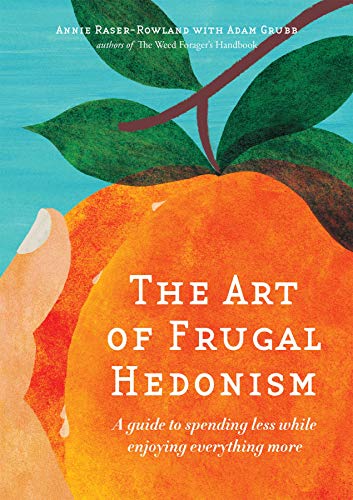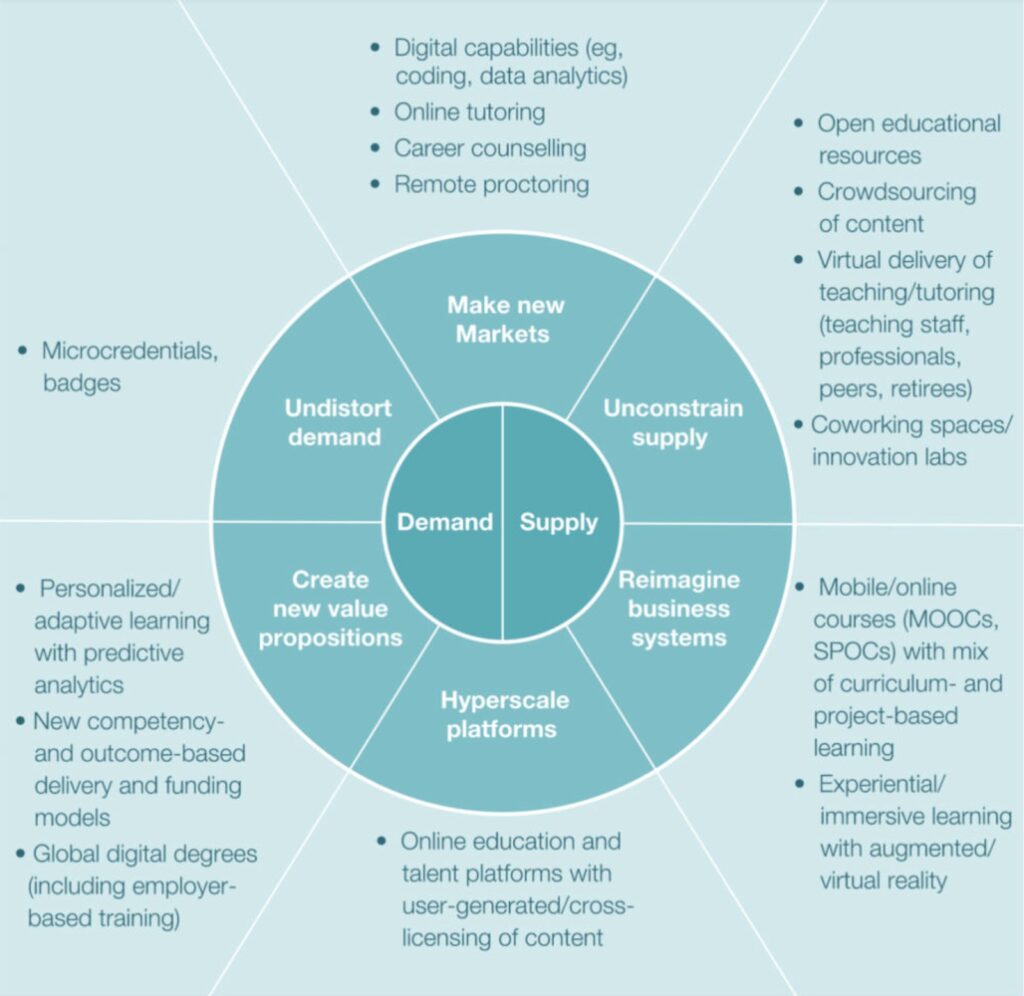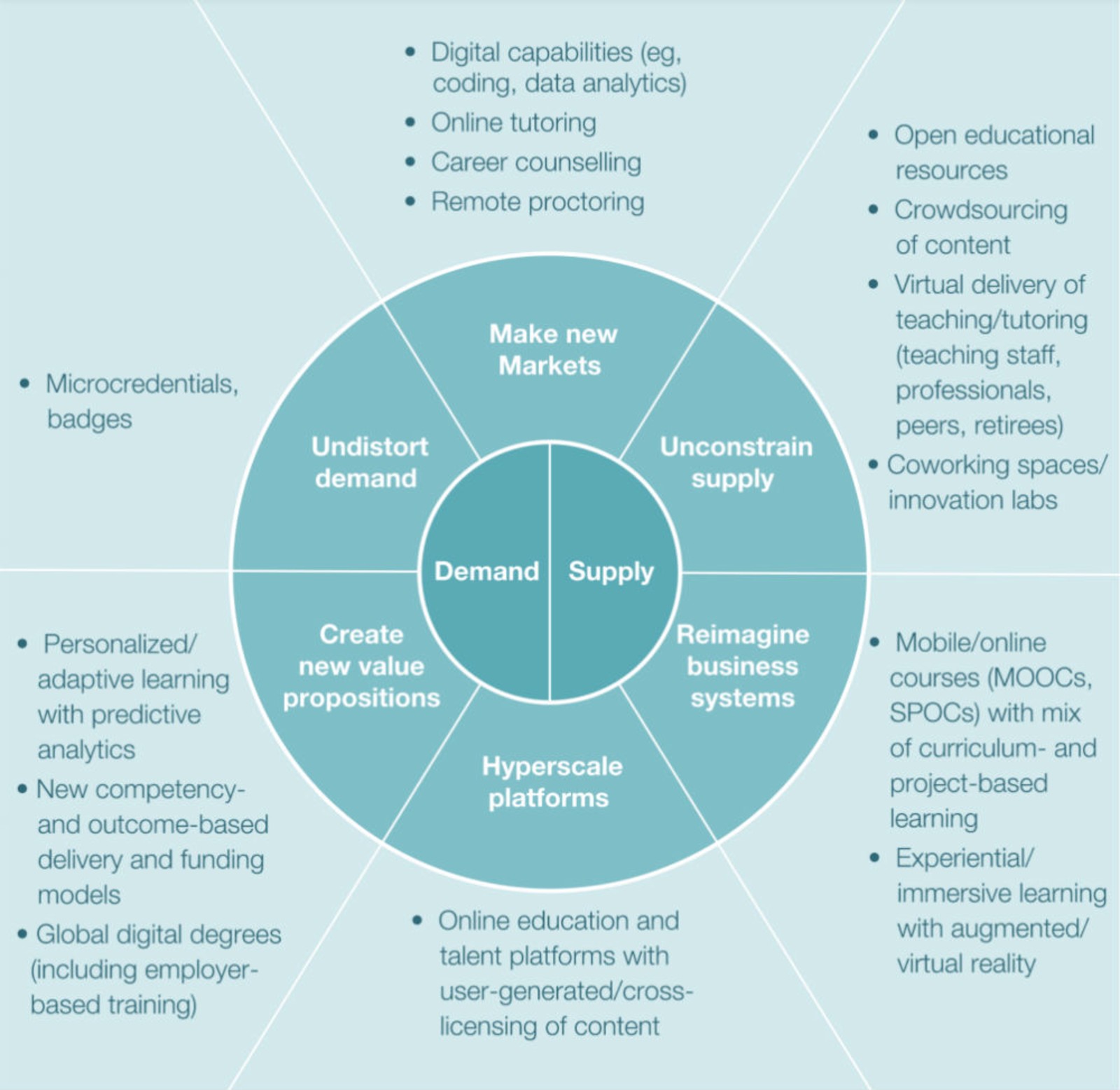Introduction
Continuing education is a crucial aspect of personal and professional growth. It not only broadens our knowledge base but also helps us adapt to the ever-changing world around us. As someone who believes in the power of frugality, I have realized that continuing education doesn’t have to be an expensive endeavor. In this guide, I will share valuable insights on how to pursue lifelong learning without breaking the bank.
What is continuing education?
Continuing education refers to the process of learning and acquiring new skills or knowledge after completing formal education. It is an ongoing practice that ensures we stay updated and relevant in our careers and personal lives. While some people associate continuing education with traditional classroom settings, it can take various forms, such as workshops, online courses, seminars, or even self-study.
The importance of continuing education
Continuing education is essential for several reasons. Firstly, it allows us to stay competitive in the job market by enhancing our skills and knowledge. Whether we aim to switch careers, advance within our current field, or simply stay updated, continuing education provides the tools necessary to thrive. Additionally, it fosters personal growth, leading to improved problem-solving abilities, critical thinking skills, and a broader perspective.
Embracing a frugal approach to continuing education not only allows us to save money but also enables us to prioritize our learning needs. By seeking out affordable or even free resources, such as community education programs, webinars, or open online courses, we can access valuable content without incurring substantial costs. Furthermore, taking advantage of professional development opportunities offered by employers or leveraging online platforms that provide discounted access to educational materials can be excellent ways to make continuing education financially attainable.
In the following sections, we will explore various strategies that will help you pursue continuing education on a budget. From leveraging free resources to making the most out of discounted options, we will uncover practical tips to make your frugal journey towards lifelong learning a success. Let’s dive in!

The Benefits of Continuing Education
Continuing education is a vital component of personal and professional growth. It allows individuals to expand their knowledge and skills in various areas, resulting in improved job prospects and overall personal development. In this section, I will delve into the different benefits of continuing education, highlighting the value it brings to our lives.
Expanded knowledge and skills
One of the primary advantages of continuing education is the opportunity to expand our knowledge and skills in specific areas of interest or relevance to our careers. Whether it’s acquiring new technical skills, familiarizing ourselves with the latest industry trends, or diving deeper into a particular subject matter, the pursuit of continued learning opens doors to a world of possibilities. By expanding our knowledge and skills, we become more adaptable, competent, and versatile in our personal and professional lives.
Improved job prospects
Continuing education plays a crucial role in enhancing our career prospects. Employers are often drawn to candidates who demonstrate a commitment to professional growth and a thirst for knowledge. Through continued learning, we stay up-to-date with industry advancements and gain a competitive edge over other job seekers. Additionally, continuing education allows us to acquire specialized certifications, increasing our chances of landing better job opportunities and potentially earning higher salaries.
Personal development and growth
Continuing education is not solely limited to professional advantages; it also fosters personal development and growth. By investing time and effort into increasing our knowledge and skills, we improve our confidence and self-esteem. The sense of achievement that comes from mastering new concepts or honing our abilities can have a profound impact on our overall well-being. Additionally, continued learning broadens our horizons, exposes us to new perspectives, and encourages critical thinking, all of which contribute to personal growth and self-improvement.
continuing education offers a wide range of benefits, including expanded knowledge and skills, improved job prospects, and personal development. By actively pursuing opportunities for continued learning, we open ourselves up to new possibilities, both personally and professionally, and cultivate a mindset of lifelong growth and improvement.

The Frugal Guide to Continuing Education
The Frugal Approach to Continuing Education
Continuing education is a valuable investment in oneself, but it doesn’t mean you need to break the bank to pursue further learning. As someone who is passionate about frugal living, I believe that we should prioritize our educational and personal development goals without sacrificing our financial well-being. In this guide, I will share some practical tips and insights on how to approach continuing education from a frugal standpoint.
Identifying your Educational Needs
Assessing your current skills and knowledge
Before embarking on any educational journey, it is crucial to take stock of your current skills and knowledge. Ask yourself, what are your strengths and weaknesses? What areas do you excel in, and where do you need improvement? By assessing your current abilities, you can identify which areas require further education or training.
Identifying gaps in your education
Once you have assessed your current skills, it’s essential to identify the gaps in your education. Are there specific subjects or industry-specific knowledge that you lack? Pinpointing these gaps will help you determine the exact areas where you can focus your continuing education efforts.
Setting learning goals
Now that you have a clear picture of your educational needs, it’s time to set specific learning goals. What do you hope to achieve through your continuing education pursuits? Whether you want to enhance your expertise in a particular field or broaden your knowledge across various subjects, setting concrete goals will guide your learning journey.
Remember, the key to a frugal approach is being intentional and focused in your educational pursuits. By first understanding your current skills and knowledge, identifying gaps, and setting clear learning goals, you will be better equipped to make informed decisions about your continuing education options. Stay tuned for the next section of this guide, where we will explore various frugal strategies for acquiring knowledge and skills without breaking the bank. Happy learning!
Researching Affordable Education Options
Continuing education is a valuable investment in our personal and professional growth, but it can often come with a hefty price tag. Luckily, there are a plethora of affordable education options available for those of us on a tight budget. In this section, I will explore some of the most cost-effective ways to continue learning without breaking the bank.
Exploring free online courses
The internet has revolutionized the way we access information, and education is no exception. There are numerous reputable platforms offering free online courses on a wide range of subjects. Websites like Coursera, edX, and Khan Academy provide access to high-quality lectures, quizzes, and assignments from top universities and institutions around the world. These courses are self-paced, allowing you to learn at your own convenience and from the comfort of your own home.
Utilizing educational resources at public libraries
Public libraries are often an underutilized treasure trove of educational resources. Many libraries offer free access to online databases, e-books, and audiobooks that cover a variety of subjects. Additionally, libraries often host workshops, seminars, and lectures on various topics, allowing you to learn from experts in a cost-free environment. Take advantage of your local library’s offerings to expand your knowledge without spending a dime.
Considering community education programs
Community colleges and adult education centers frequently offer affordable continuing education programs. These institutions cater to adult learners who are looking to gain new skills or knowledge for personal or professional development. Courses are often offered at a fraction of the cost of traditional higher education institutions. Additionally, community education programs are typically designed to fit the schedules of working adults, with evening and weekend classes available.
continuing education doesn’t have to cost a fortune. By exploring free online courses, utilizing the educational resources at your local library, and considering community education programs, you can continue learning and growing without stretching your budget. Education is a lifelong journey, and with the right approach, it can be a frugal one too.

Utilizing Frugal Study Techniques
Setting up a study space at home
When it comes to continuing education, creating the right study environment is crucial. At frugaldude.org, we believe in optimizing every aspect of our lives, even our study space. Setting up a dedicated area at home, whether it’s a corner of your room or a whole office, can help improve focus and productivity. Make sure your study space is well-lighted, quiet, and free from distractions. Utilize furniture you already have or consider purchasing second-hand items or repurposing existing ones. By being resourceful, you can create a conducive study environment without breaking the bank.
Creating a study schedule
Establishing a study schedule is an essential part of frugal learning. Plan your study sessions in advance and stick to a routine that works best for you. This will help you stay organized and avoid wasting time. Determine which days and times of the week are most suitable for studying, considering your other commitments. A mindful approach to scheduling will not only result in optimum use of your time but also prevent burnout. Additionally, it’s essential to take breaks during study sessions. Use this time to relax, stretch, or engage in affordable hobbies to maintain a healthy balance.
Utilizing open educational resources
One of the best frugal study techniques is to take advantage of open educational resources (OER). OER include free online textbooks, lecture notes, educational videos, and more. These resources can be accessed without cost, and they cover a wide range of subjects. Platforms like Khan Academy, Coursera, and OpenStax offer a plethora of quality educational content. By utilizing these resources, you can continue your education without spending a fortune on textbooks or expensive courses.
frugality doesn’t mean compromising on the quality of your education. By setting up a study space at home, creating a study schedule, and utilizing open educational resources, you can continue your education in a frugal yet effective way. So, embrace these techniques and expand your knowledge without breaking the bank. Happy learning! Are you passionate about learning but worried about the financial burden of continuing education? Don’t let the cost deter you from pursuing your dreams and expanding your knowledge. With the right approach and some resourceful thinking, you can embark on your educational journey without breaking the bank. In this guide, I will share valuable tips and strategies to help you navigate the world of continuing education on a frugal budget.
Seeking Financial Assistance and Scholarships
Researching government grants and funding options
One of the first steps in your quest for financial assistance is to research the various government grants and funding options available. Many local and national government organizations offer grants specifically designed for individuals seeking to further their education. Take the time to explore websites and resources that provide information on these grants. Look into eligibility criteria, application processes, and deadlines. It’s important to remain diligent and organized during your search to maximize your chances of securing financial support.
Applying for scholarships
Scholarships are another fantastic avenue for obtaining financial aid. There are numerous scholarships offered by educational institutions, nonprofit organizations, and private foundations. Spend time researching scholarships relevant to your field of study. Pay close attention to the application requirements and deadlines. Craft a compelling application essay that showcases your achievements, aspirations, and reasons why you deserve the scholarship. Remember, every penny saved through a scholarship is a step closer to achieving your educational goals.
Exploring employer-sponsored education programs
If you are currently employed, it’s worth exploring whether your employer offers any education assistance programs. Many companies recognize the value of investing in their employees’ professional development and may provide tuition reimbursement or company-sponsored scholarships. Speak with your HR department to discuss potential opportunities and eligibility criteria. Taking advantage of these employer-sponsored programs can significantly reduce your educational expenses while simultaneously advancing your career.
By diligently researching government grants, applying for scholarships, and exploring employer-sponsored programs, you can significantly alleviate the financial burden of continuing education. Don’t let monetary constraints hold you back from pursuing knowledge and personal growth. Empower yourself with these frugal strategies, and embark on your educational journey with confidence.

Networking for Educational Opportunities
Continuing education is an essential part of personal and professional growth. However, the cost associated with obtaining further education can often be overwhelming. As a frugal individual, I have sought out various methods of continuing education that are not only cost-effective but also offer valuable networking opportunities. In this section, I will share my insights on how to maximize educational opportunities while remaining frugal.
Joining professional organizations
One of the best ways to enhance your knowledge and expand your network is by joining professional organizations. These organizations typically offer a wide range of resources, such as training programs, webinars, and workshops, to further develop your skills. Moreover, membership often grants access to exclusive job boards and industry events. While some organizations may require a membership fee, the benefits far outweigh the cost.
Attending industry conferences and seminars
Industry conferences and seminars are prime opportunities for learning and networking. These events bring together experts, thought leaders, and professionals from various sectors. Attending these conferences allows you to stay abreast of the latest trends and advancements in your field while providing ample opportunities for networking. To attend these conferences on a frugal budget, consider applying for scholarships or seeking out volunteer opportunities in exchange for reduced or free registration fees.
Engaging with online learning communities
In today’s digital age, online learning communities have become a valuable resource for continuing education. There are numerous platforms and forums where you can connect with like-minded individuals, participate in discussions, and access educational materials. Many of these communities offer free or low-cost courses, webinars, and virtual conferences. Engaging with these online communities not only expands your knowledge but also allows you to establish connections with professionals worldwide.
By leveraging professional organizations, attending industry conferences, and engaging with online learning communities, you can obtain valuable educational opportunities at a fraction of the cost. These networking strategies will not only enhance your knowledge and skills but also open doors to potential career advancements. Remember, continuing education doesn’t have to break the bank, and with a frugal mindset, you can maximize your educational endeavors without compromising quality.
Applying for Online Degree Programs
Researching accredited online universities
When it comes to continuing education, online degree programs have become increasingly popular due to their flexibility and convenience. However, before diving into this realm of education, it’s crucial to conduct thorough research and find reputable accredited online universities.
Start by exploring different universities and programs that align with your educational goals. Look for universities that are accredited by recognized accrediting bodies to ensure that the education you receive is of high quality and will be recognized by employers and other educational institutions.
Comparing program costs and admission requirements
Another important factor to consider when applying for online degree programs is the cost and admission requirements. It’s essential to compare the tuition fees of different universities and programs to find the most affordable option that still meets your educational needs. Additionally, carefully review the admission requirements to ensure that you are eligible and well-prepared for the application process.
Evaluating the quality of online education
While online degree programs offer convenience, it’s crucial to evaluate the quality of education provided. Look for universities that offer robust online learning platforms, provide access to qualified instructors, and offer interactive and engaging coursework. Reading reviews and testimonials from current and former students can also provide valuable insights into the quality of education and support offered by the university.
applying for online degree programs requires careful research, consideration of program costs and admission requirements, and evaluation of the quality of education. By taking a frugal approach to continuing education, you can find an online degree program that fits your needs without breaking the bank. Remember to stay informed, compare options, and make thoughtful decisions to ensure a successful and rewarding educational journey.

Maximizing Credit Transfer and Prior Learning Assessment
Continuing education is a valuable tool for personal growth and career advancement. However, the cost of furthering one’s education can often be a barrier for many individuals. As someone who is committed to living a frugal lifestyle, I understand the importance of finding affordable options for continuing education. In this section, I will share some tips on maximizing credit transfer and taking advantage of prior learning assessment to minimize the cost of continuing education.
Determining Transferable Credits
One common way to save money on continuing education is by transferring credits from previous academic coursework. To determine which credits are transferable, it is crucial to carefully review the transfer credit policies of the institution you plan to attend. Look for courses that align with your desired degree program and ensure that you have received a passing grade in those courses. By maximizing the number of transferable credits, you can significantly reduce the time and cost required to complete your education.
Applying for Prior Learning Assessment
Another option to consider is applying for prior learning assessment (PLA). PLA allows individuals to earn college credits based on their prior knowledge and experiences. This could include work experience, professional certifications, or even volunteer work. By undergoing a formal assessment process, you can demonstrate your proficiency in a particular subject area and potentially earn credits towards your desired degree. This can greatly reduce the number of courses you need to complete, ultimately saving you time and money.
Maximizing Credit Transfer Opportunities
To further maximize credit transfer opportunities, it is important to plan your educational path strategically. Research your desired degree program and identify colleges or universities that have credit transfer agreements with other institutions. These agreements allow for smoother credit transfers between schools, ensuring that you do not lose any previously earned credits. Additionally, consider taking courses at a community college before transferring to a four-year institution. Community college courses often have lower tuition rates, making them an attractive and cost-effective option for gaining credits.
By taking advantage of credit transfer and prior learning assessment opportunities, you can save both time and money on continuing education. Plan your educational path carefully, explore potential transfer credit options, and consider applying for prior learning assessment to maximize your educational investment. With a proactive and frugal approach, you can achieve your educational goals without breaking the bank.
Creating a Budget for Continuing Education
Continuing education is integral to personal growth and professional advancement. However, the costs associated with pursuing further education can often be overwhelming. As a frugal individual myself, I understand the importance of budgeting wisely to make the most of every dollar spent on continuing education. In this section, I will guide you through the process of creating a budget that aligns with your educational goals while still keeping your wallet happy.
Calculating Educational Expenses
The first step in creating a budget for continuing education is to calculate your educational expenses. This includes tuition fees, textbooks, course materials, and any additional certification or examination fees. Take the time to thoroughly research and understand the costs associated with the programs or courses you wish to pursue. Consider reaching out to educational institutions or online platforms for accurate information on expenses.
Identifying Areas to Cut Costs
Once you have a clear understanding of your educational expenses, it’s essential to identify areas where you can cut costs. Explore options like open educational resources (OER) and online libraries for free or low-cost textbooks and learning materials. Look for scholarships, grants, or employer reimbursement programs that can help cover part or all of your educational expenses. Additionally, consider purchasing used books or renting them instead of buying brand new copies.
Developing a Savings Plan
To ensure you have the necessary funds to support your continuing education endeavors, it is crucial to develop a savings plan. Start by setting a realistic savings goal and determining a timeline for achieving it. Look for opportunities to cut back on unnecessary expenses in your day-to-day life and redirect those savings towards your education fund. Consider automating your savings by setting up regular transfers from your checking account into a separate savings account. This simple step will help you stay on track and gradually build up the necessary funds.
By following these budgeting strategies, you can successfully pursue continuing education without breaking the bank. Remember, it’s all about making informed choices and finding creative solutions to reduce costs along the way. With careful planning and a frugal mindset, you can achieve your educational goals while maintaining financial stability. So, let’s get started on this exciting journey towards personal and professional development!
Staying Motivated and Overcoming Challenges
Setting realistic goals and expectations
When it comes to continuing education, setting realistic goals is essential for success. As a frugal learner, it’s important to identify what you want to achieve and determine a feasible timeline for accomplishing it. By setting specific, measurable, achievable, relevant, and time-bound (SMART) goals, you can stay focused and motivated throughout your learning journey.
As you embark on your educational pursuit, keep in mind that progress may be slow at times. It’s crucial to set realistic expectations for yourself and understand that learning takes time and effort. Don’t be too hard on yourself if you don’t meet every milestone on your desired timeline. Remember, the important part is to keep moving forward and making progress.
Utilizing motivational techniques
To maintain motivation during your frugal continuing education journey, try incorporating various techniques into your learning routine. One effective approach is celebrating small achievements along the way. Recognize and reward yourself whenever you reach a milestone or complete a challenging task. This positive reinforcement can boost your motivation and make the learning process more enjoyable.
Another motivational technique is finding a study buddy or joining an online learning community. Engaging with like-minded individuals who share similar goals can provide support, accountability, and motivation. By sharing your progress, discussing challenges, and exchanging insights, you can stay inspired and encouraged throughout your educational journey.
Overcoming time management issues
One common challenge faced by frugal learners is finding time for education while balancing other commitments. Overcoming time management issues is vital to ensure you make the most of your learning opportunities. Start by creating a schedule that allocates dedicated time for studying and learning activities. Prioritize your tasks and eliminate unnecessary distractions to maximize your productivity.
Additionally, consider adopting time-saving strategies such as utilizing technology to streamline your learning process. Explore online resources, e-books, or podcasts that allow you to learn on the go or during pockets of free time. By making efficient use of available resources and optimizing your time management skills, you can overcome this challenge and make significant strides in your continuing education journey.
Remember, maintaining motivation and overcoming challenges is an integral part of the frugal approach to continuing education. By setting realistic goals, using motivational techniques, and conquering time management issues, you can stay on track and achieve your educational aspirations without breaking the bank. So go ahead, embrace the frugal mindset and embark on a path of lifelong learning!
Conclusion
Summary of key points
In this frugal guide to continuing education, I have provided valuable tips and resources to help you pursue further education on a budget. Let’s quickly recap the key points discussed in this article.
Firstly, I emphasized the importance of seeking out free or low-cost educational options. Online platforms such as Coursera, Khan Academy, and Udemy offer a wide range of courses across various subjects, allowing you to learn at your own pace and without breaking the bank.
Additionally, I highlighted the value of utilizing public libraries as a valuable resource for accessing free educational materials. Many libraries offer extensive collections of books, audiobooks, e-books, and online databases that can support your learning journey.
Moreover, I recommended exploring open-source software and tools that can enhance your learning experience without the need for expensive subscriptions or licenses. Platforms like GIMP, LibreOffice, and Audacity provide free alternatives to costly software packages.
I also discussed the benefits of joining professional associations and networking groups, which often offer discounted or free educational opportunities. By connecting with like-minded professionals, you can gain access to workshops, conferences, and webinars that can further your knowledge and skills.
Encouragement to pursue continuing education on a frugal budget
In conclusion, I want to emphasize that continuing education is within reach, even on a limited budget. By adopting a frugal mindset and exploring the numerous free and affordable resources available, you can continue to develop your knowledge and skills without incurring significant expenses.
Remember, the journey of lifelong learning is a marathon, not a sprint. Take small steps, explore new avenues, and embrace the opportunities that come your way. Regardless of your financial situation, investing in your education and personal growth is always worthwhile.
So go forth, embrace your frugal lifestyle, and never stop learning. The world is full of knowledge waiting to be discovered, and with the right approach, you can pursue continuing education without breaking the bank. Happy learning!

